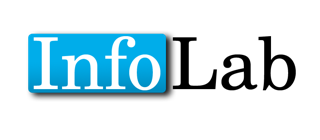Did you mean
Id:a851c992-0906-4db4-9441-a4ef6dd1906f institutional revitalization wallace (1)?
Id:a851c992-0906-4db4-9d41-a4ef6dd1906f institutional revitalization wallach (1)?
Id:a851c992-0906-4db4-9d41-a4ef6dd1906f institutional revitalizations wallace (1)?
1
results found in 31 ms
Page 1
of 1
Workform
Book_Short_Form
Id
a851c992-0906-4db4-9d41-a4ef6dd1906f
Author Monographic
Farmbry, Kyle
Author Combination
Farmbry, Kyle
Title Monographic
CRISIS, DISASTER, AND RISK: INSTITUTIONAL RESPONSE AND EMERGENCE
Title Combination
CRISIS, DISASTER, AND RISK: INSTITUTIONAL RESPONSE AND EMERGENCE
Place of Publication
Armonk, New York
Publisher Name
M. E. Sharpe
Date of Publication
2013
Availability
FF: Risk Assessment and Decision Theory
ISBN
978-0-7656-2421-5
Notes
LCCN: 2012000156 Library owns 2 copies. Copy 2 stored in ELQ RC Annex. Contents: Introduction: Crisis, Disaster, and Risk in a Late-modern Era Part I: Natural Disasters as Crises Optimism Interrogated: The Earthquake sand Tsunamis of 1755 and 2004 Earthquakes and Progressive-era Revival Limits of the Built Environment: Hurricanes and Choices fo Locality Part II: Global Public Health Plague as Crisis and Corollary to Societal Change Germ Theory, Cholera, and Infectious Disease Infectious Disease and Nascent Public Health Infrastructures: The 1918 Influenza Epidemic Twentieth-century Optimism HIV/AIDS Anticipated Health Crises Part III: Technology, Science, and Crisis The Multiple Crises of a Nuclear Era Balancing the Optimism and Risks of Civilian Nuclear Energy Hazardous Waste Industrial Accidents and Determining Liability: Bhopal Oil Conclusion: Toward New Institutional Frameworks for Mitigating Risks and Potential Crises
Abstract
The 2004 Indian Ocean tsunami, Hurricanes Katrina and Rita, and earthquakes in Pakistan, India, and Japan have demonstrated the need for the ongoing examination of organizational learning processes of responders to natural disasters. This book explores the interactions of theories of risk with natural disasters, health crises, and crises in the areas of science and technology. The author argues that many of the responses to the crises and disasters that are encountered are the product of systems that have been created through direct policy choices and choices undertaken in daily life. Using organizational frameworks developed exclusively by the author, this book provides a series of best practices and lessons related to each of the emergency and crisis situations covered. These lessons will assist students and practitioners, engaged in learning about and reacting to crises, to better respond to them.
Call Number
150.F3.C7.1
Keywords
Risk Analysis ;
Earthquake-Case Studies ;
Tsunami-Case Studies ;
Epidemic ;
Nuclear Hazards ;
Social Factors ;
1
results found.
Page 1
of 1



